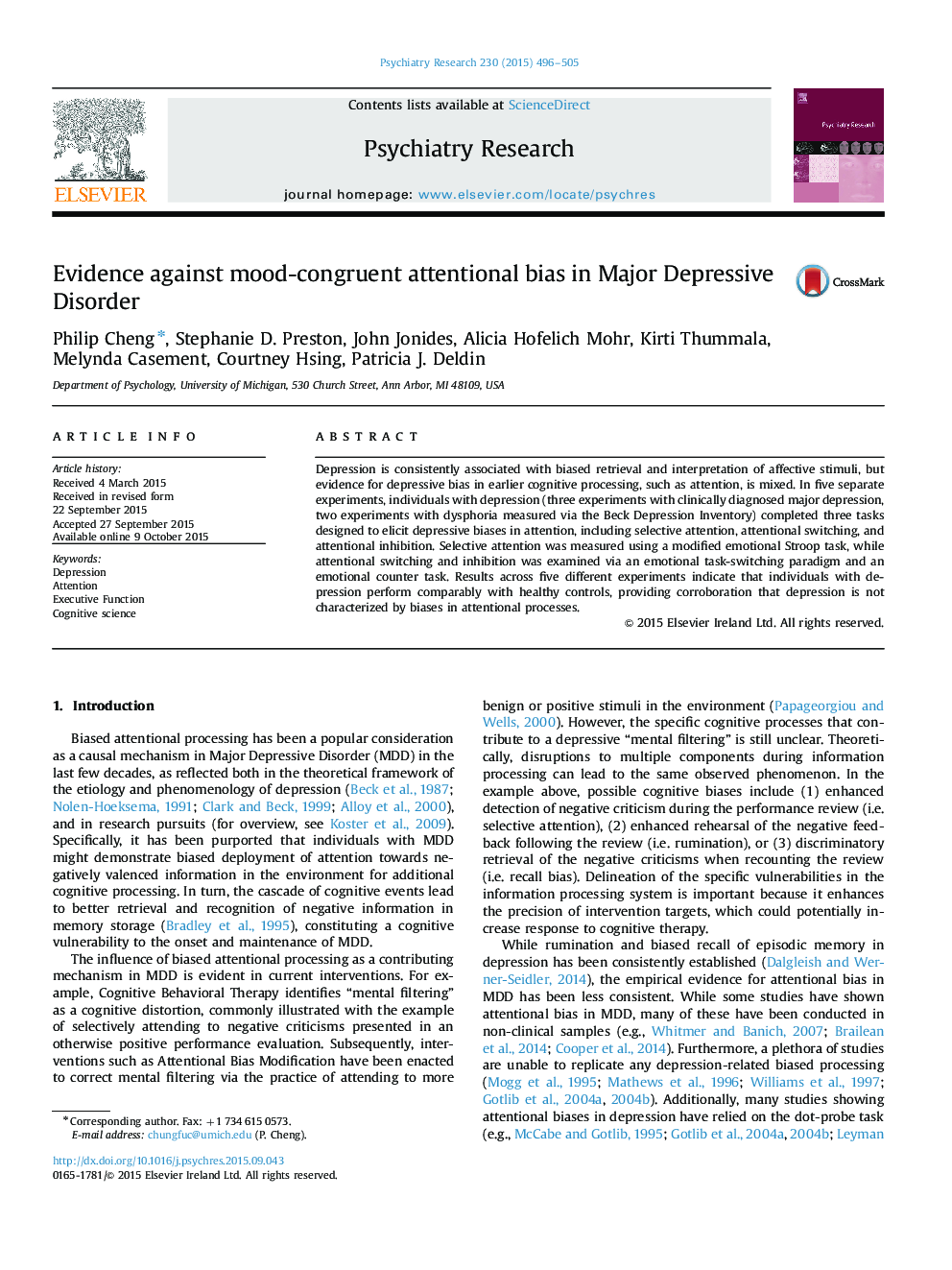| Article ID | Journal | Published Year | Pages | File Type |
|---|---|---|---|---|
| 10303619 | Psychiatry Research | 2015 | 10 Pages |
Abstract
Depression is consistently associated with biased retrieval and interpretation of affective stimuli, but evidence for depressive bias in earlier cognitive processing, such as attention, is mixed. In five separate experiments, individuals with depression (three experiments with clinically diagnosed major depression, two experiments with dysphoria measured via the Beck Depression Inventory) completed three tasks designed to elicit depressive biases in attention, including selective attention, attentional switching, and attentional inhibition. Selective attention was measured using a modified emotional Stroop task, while attentional switching and inhibition was examined via an emotional task-switching paradigm and an emotional counter task. Results across five different experiments indicate that individuals with depression perform comparably with healthy controls, providing corroboration that depression is not characterized by biases in attentional processes.
Related Topics
Life Sciences
Neuroscience
Biological Psychiatry
Authors
Philip Cheng, Stephanie D. Preston, John Jonides, Alicia Hofelich Mohr, Kirti Thummala, Melynda Casement, Courtney Hsing, Patricia J. Deldin,
